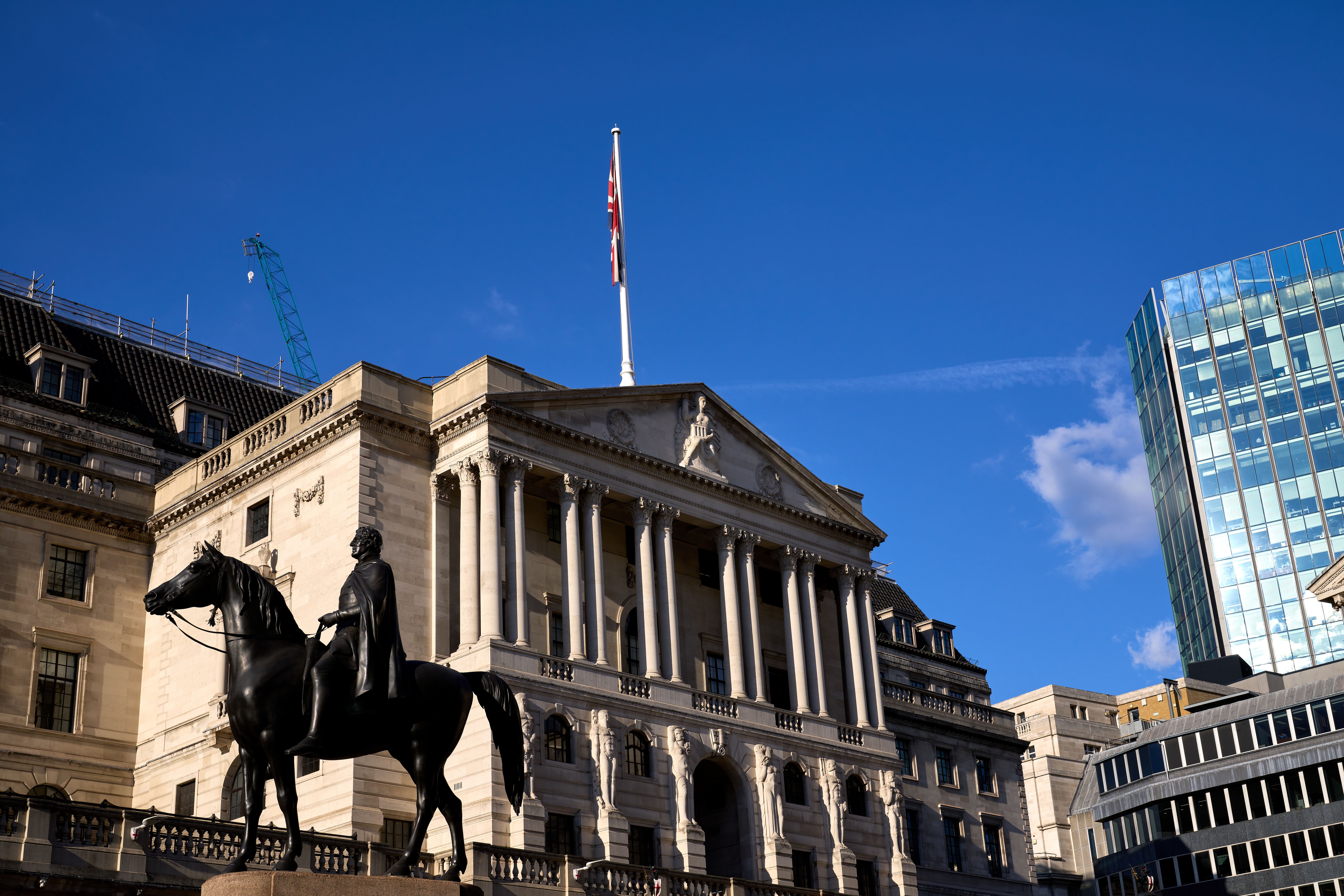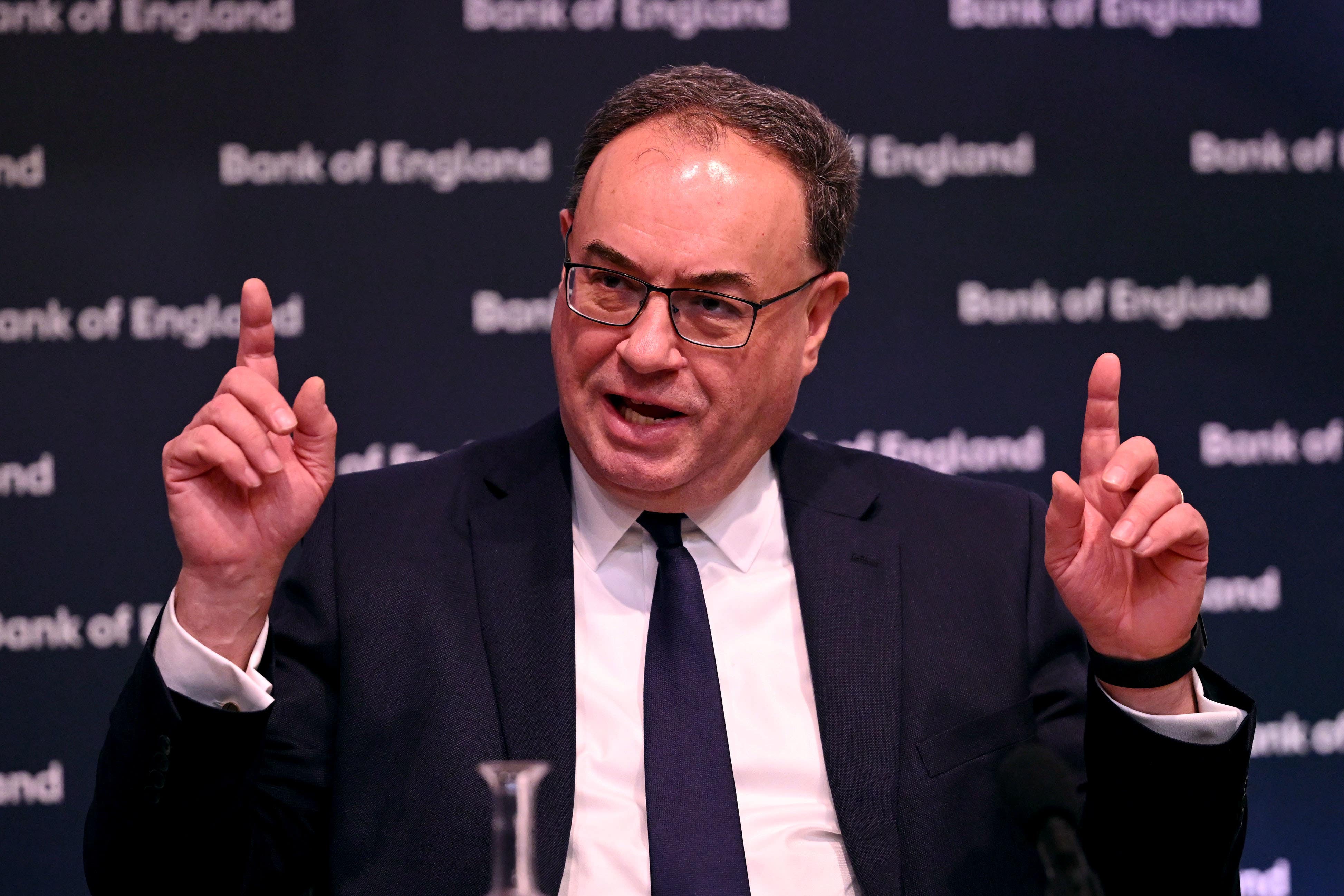Interest rates ‘likely to rise again’ despite signs of ‘turning point’
Rate setter says it is too soon to pause increases

Your support helps us to tell the story
From reproductive rights to climate change to Big Tech, The Independent is on the ground when the story is developing. Whether it's investigating the financials of Elon Musk's pro-Trump PAC or producing our latest documentary, 'The A Word', which shines a light on the American women fighting for reproductive rights, we know how important it is to parse out the facts from the messaging.
At such a critical moment in US history, we need reporters on the ground. Your donation allows us to keep sending journalists to speak to both sides of the story.
The Independent is trusted by Americans across the entire political spectrum. And unlike many other quality news outlets, we choose not to lock Americans out of our reporting and analysis with paywalls. We believe quality journalism should be available to everyone, paid for by those who can afford it.
Your support makes all the difference.Interest rates will likely need to rise further despite early signs of a “turning point” in the battle against sky-high inflation, a Bank of England policymaker has warned.
Catherine Mann, one of the nine interest rate setters at the Bank, said it was too soon to pause hikes, warning that there are still big risks that inflation may prove stubborn, even if price rises appear to have passed their peak.
In a speech at the Lamfalussy Lectures Conference in Budapest, Hungary, Ms Mann said: “Uncertainty around turning points should not motivate a wait-and-see approach, as the consequences of under tightening far outweigh, in my opinion, the alternative.
“We need to stay the course, and in my view the next step in Bank Rate is still more likely to be another hike than a cut or hold.”
It comes after Bank governor Andrew Bailey reinforced speculation that last week’s 10th rise in a row from 3.5% to 4% could be the last as he said there has been a “turning of the corner” on inflation in recent months.

The Bank also upgraded its economic outlook for the UK, predicting that an expected recession will be shorter and shallower than previously thought.
Inflation has already begun to come down off the highs of late last year, currently at 10.5% against 11.1% in October, and the Bank said it expects the measure to fall quickly in 2023.
But Ms Mann, who was one of the seven Monetary Policy Committee (MPC) members who voted to raise rates, said she still sees “material upside risks to our inflation outlook” and warned over being “complacent about inflation”.
She said: “If there is uncertainty about the degree of inflation persistence, it is better to assume a high degree because the costs of making a mistake if the true inflation process is more persistent are larger than if the true inflation process is less persistent.”
In my view, a tighten-stop-tighten-loosen policy boogie looks too much like fine-tuning to be good monetary policy
She said not all the underlying measures of inflation are easing back, adding that before halting rate hikes, she would want to see “a significant and sustained deceleration in higher frequency price increases and in the underlying inflation measures and expectations towards inflation rates that are consistent with achieving the 2% target”.
“The moderation of inflation this year has to be as rapid and complete on the downside as its ratchet-up was last year,” she added.
Pausing rate hikes only to have to resume with increases later on would be just as damaging to inflation expectations, she cautioned.
“Why not wait, that is pause the hiking cycle, to see if the inflation dynamics are what I think they are?
“If inflation indeed is more persistent, then Bank Rate will need to rise again after the pause, to be followed later with reversal.
“In my view, a tighten-stop-tighten-loosen policy boogie looks too much like fine-tuning to be good monetary policy.
“It is both hard to communicate and to transmit through markets to the real economy.”